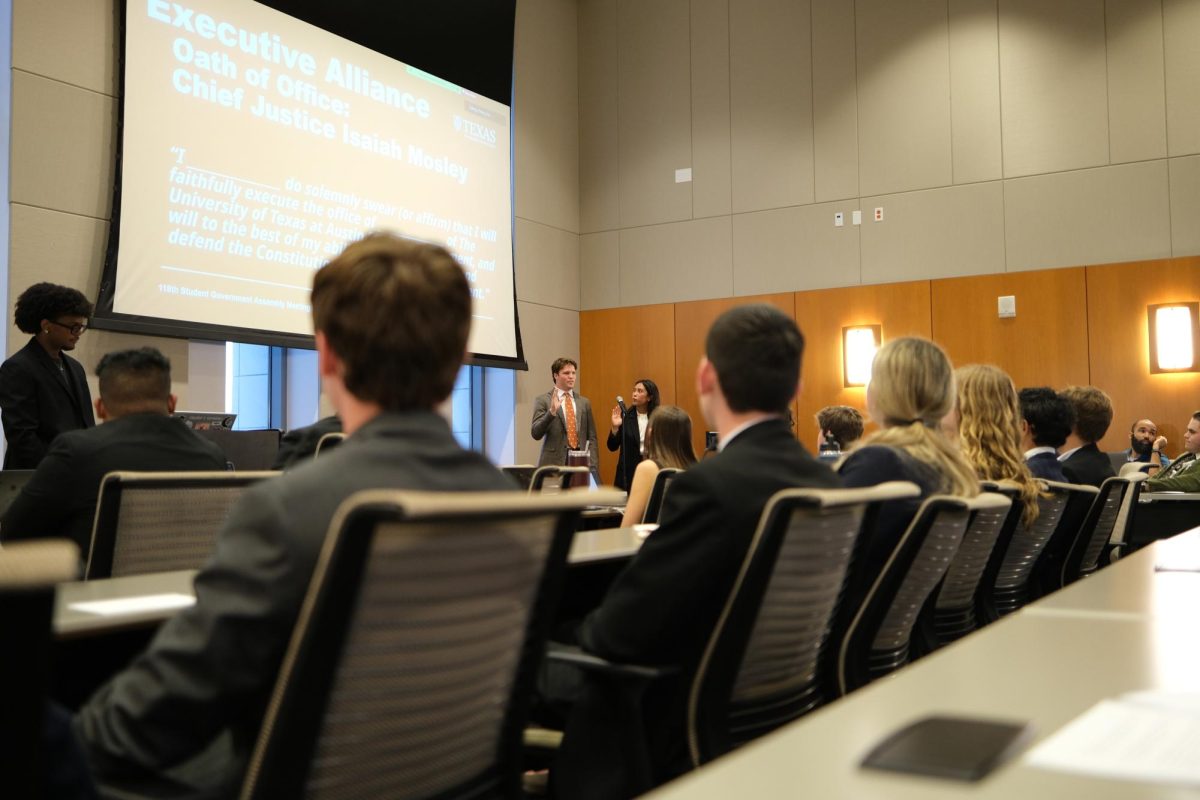U.S. Founding Father Benjamin Franklin wrote: “Why should Pennsylvania, founded by the English, become a colony of aliens who will shortly be so numerous as to Germanize us instead of our Anglifying them?”
The question of “who belongs in the U.S. and who doesn’t” is a centuries-old debate, history professor Neil Foley said.
“The U.S. has been reluctant to acknowledge for most of its history [that it] has always been a thoroughly composite culture of racially blended people and it defies some normative or static understanding of what it means to be an American,” Foley said to a group of UT students, faculty and community members Monday during a roundtable discussion hosted by UT’s Institute for Historical Studies.
Foley presented a chapter from his upcoming book, “Latino USA: Mexicans and the Remaking of America,” which will be released fall 2012, to the group in order to get feedback and facilitate conversation about his new book.
The U.S. continues to struggle with issues of racism and immigration, Foley said, citing the recent 700-mile border fence between the U.S. and Mexico and treatment of migrants.
Foley argues that in order for Latinos and other marginalized groups to belong in America it would require remaking of American culture into one more egalitarian and accepting of differences and therefore “more American.”
Foley told the group that Benjamin Franklin believed only the English were “purely white” and that “swarthy” Europeans could not make good Americans.
“He would probably have a lot to say about Asian-Americans and Mexicans and other Latinos today not making good Americans either, I suppose,” Foley said.
College of Liberal Arts Institute for Historical Studies hosts biweekly discussions, inviting professors to present a work-in-progress in exchange for feedback.
“The best scholarship is not produced in vacuum,” said Julie Hardwick, director of UT’s Institute for Historical Studies. “Faculty that sit in an office and are not engaging with anyone else aren’t really very fruitful. It’s very important for faculty to get feedback on their work.”
History graduate student Sarah Steinbock-Pratt, who attended the discussion, said the workshops are an essential part of her education at UT.
“There are a lot of very, very smart people around the table who are all asking very astute questions,” Steinbock-Pratt said. “Participating in that dialogue is extremely beneficial.”
Foley, said he plans to take the feedback to heart. He said just like his book, the United States is a work in progress.
“[Americans worry that immigrants] are going to change the culture of America into something else and to that I would argue that American culture is always changing. That the United States is a work in progress,” Foley said. “To identify an American culture and go back to 1965 — it is vastly different from what it is today.”
Printed on September 20, 2011 as: 'Latino USA' addresses ethnic tensions


















